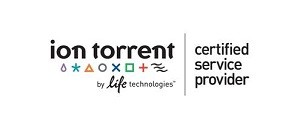Anemia Fanconi (FA) is considered a hematological disorder, but the clinical features are more far-reaching. FA includes numerous malformations, bone marrow failure (aplastic anemia), pancytopenia and predisposition to various cancers, particularly acute myelogenous leukemia (AML), gynecological cancers and cancers of the head and neck. Patients with FA are ~800 times more susceptible to AML than the general population, with an average age of onset of 13 years of age.
The malformations included constitutive limb anomalies (radial ray defects), abnormal skin pigmentation, short stature, microphthalmia, abnormalities of the kidneys and the genitourinary tract, gastrointestinal disorders (atresia), congenital heart disease, deafness, abnormalities of central nervous system and global developmental delay. Approximately one third of patients with FA exhibit no obvious physical abnormalities and are diagnosed following the diagnosis of the disease in another family member, or after the development of hematological abnormalities, such as thrombocytopenia, leukopenia and anemia.
FA is a genetically heterogeneous autosomal recessive genetic disorder and to date there are at least 15 genes associated with disease manifestation. Approximately 85% of all cases are due to mutations in three genes: FANCA (~60%), FANCC (~15%) and FANCG (~10%), while extensive deletions of the genes have also been reported. We now know that more than 99% of FA patients harbor mutations in one of the genes: FANCA, FANCB, FANCC, BRCA2, FANCD2, FANCE, FANCF, FANCG, FANCI, BRIP1, FANCL, FANCM, PALB2, RAD51C and SLX4..
The frequency of FA carriers is estimated at approximately 1 in 180 and the incidence of the disease is about 1 in 130,000 births.
With the exception of patients with types FANCN and FANCD1, which seem to exhibit the most severe clinical symptoms, there are no obvious genotype-phenotype correlations. However, null alleles has been reported to be associated with more severe clinical phenotypes. Generally, the disease phenotype is variable (clinical heterogeneity) and family members with the same mutation(s) may express different phenotypes. The disease affects men and women equally and occurs with similar frequency in all ethnic groups.
Cytogenetic analysis, following application of a specific protocol using mitostatic agents, which is often used as a first step, is not always able to diagnose the disease and is certainly not able to reveal the specific mutation and the type of Fanconi anemia. Currently, the preferred method of genetic testing for FA is massive parallel genomic analysis through Next Generation Sequencing (NGS) of all 15 known genes associated with Fanconi anemia, leading to accurate diagnosis with a high degree of success in a single step.
Furthermore, knowledge of the pathogenic mutations in the patient and the family is particularly important if not necessary for clinical management as well as for disease prevention through prenatal or preimplantation genetic diagnosis. In addition, knowledge of the mutations will also enable the development and application of a specific protocol for preimplantation genetic diagnosis coupled to HLA-matching, leading to the birth of a healthy and histocompatible child-donor, which will lead to successful hematopoietic stem cell transplantation (using cord-blood stem cells and/or bone marrow) with subsequent therapy of the affected child.
We perform DNA sequence analysis, via Next Generation Sequencing (NGS) on a Genome Analyzer – Ion Proton platform, of all exons and intron-exon junctions/splice sites of the 15 genes: FANCA, FANCB, FANCC, BRCA2, FANCD2, FANCE, FANCF, FANCG, FANCI, BRIP1, FANCL, FANCM, PALB2, RAD51C and SLX4, allowing us to detect >98% of all pathogenic mutations of the genes through the use of specially developed bioinformatics tools, thus providing in a single step an increased clinical sensitivity and performance compared to single gene testing.
Where possible and/or necessary, we carry out additional MLPA analysis in order to detect deletions/duplications of the genes (please consult the final test report).
The test is highly sensitive and complex, so it is necessary that the results are assessed by a specialized team of clinical and molecular geneticists, in order to ensure safe and reliable testing.
Proper clinical genetic assessment and genetic counseling, both before and after testing, is essential in order to determine the optimum testing strategy and also to communicate properly the concepts of pathological and normal.

